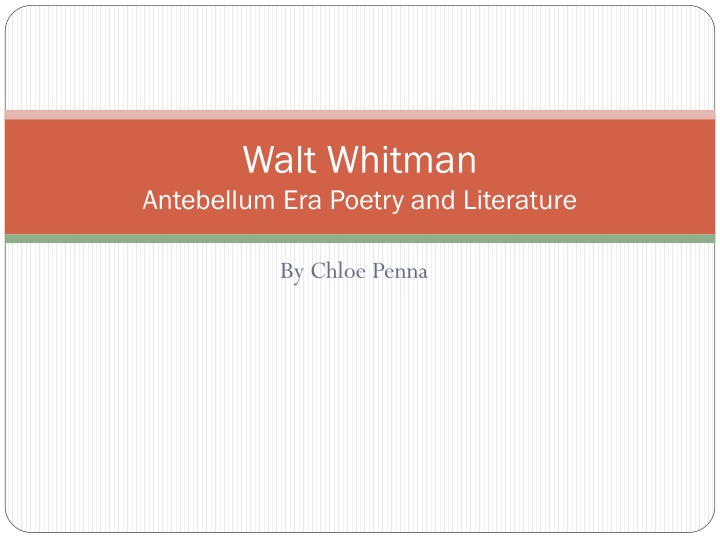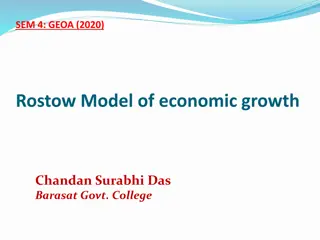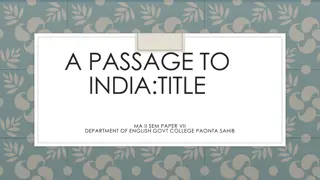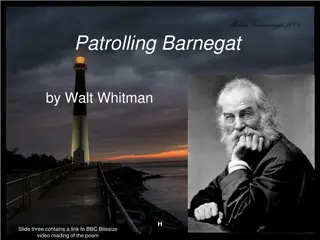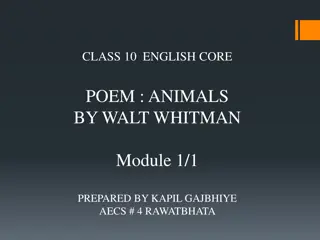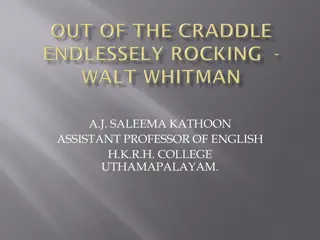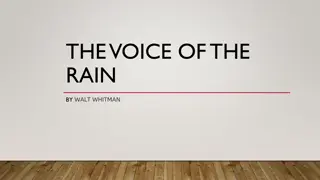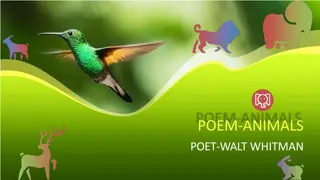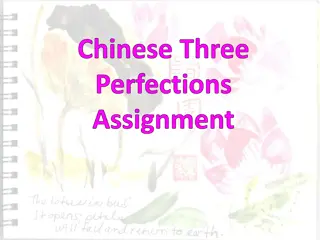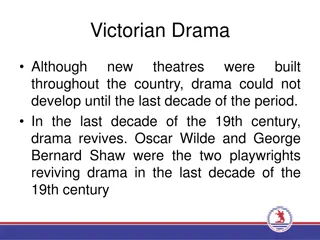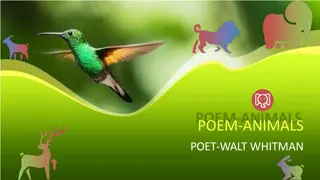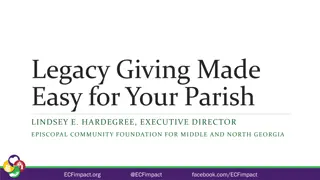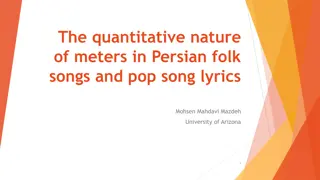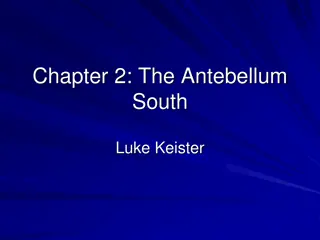Walt Whitman: Poetry and Legacy in the Antebellum Era
Walt Whitman, a prominent American poet of the 19th century, contributed significantly to shaping American literature during the Antebellum Era. Through works like "Leaves of Grass," he embraced themes of democracy, individualism, love, and nature, defying conventional literary norms. Despite facing societal challenges, Whitman's unique writing style and self-published masterpieces left a lasting legacy in American poetry.
Uploaded on Sep 25, 2024 | 0 Views
Download Presentation

Please find below an Image/Link to download the presentation.
The content on the website is provided AS IS for your information and personal use only. It may not be sold, licensed, or shared on other websites without obtaining consent from the author.If you encounter any issues during the download, it is possible that the publisher has removed the file from their server.
You are allowed to download the files provided on this website for personal or commercial use, subject to the condition that they are used lawfully. All files are the property of their respective owners.
The content on the website is provided AS IS for your information and personal use only. It may not be sold, licensed, or shared on other websites without obtaining consent from the author.
E N D
Presentation Transcript
Walt Whitman Antebellum Era Poetry and Literature By Chloe Penna
Antebellum Era Literature Romanticism in literature the liberation of the human spirit (Brinkley) Response to European low opinion of American intellectualism, or lack thereof 1820s distinct American literary voice James Fenimore Cooper first great American novelist American culture and conflict Herman Melville, Moby Dick Edgar Allen Poe, poems and novels Many Southern Antebellum writers focused on American nationalism Walt Whitman and Emily Dickinson considered most important American poets Transcendentalists, romantic-inspired writers and philosophers
Walt Whitman Image result for walt whitman
Walts Life May 31 1819 March 26 1892 Long Island, New York printer, schoolteacher, reporter, editor, clerk, author/poet Concerned with slavery Homosexual living in an intolerant society Civil War, freelance journalist Visited and aided wounded soldiers Not overly popular until after death
Legacy One of America s most important 19thcentury poets Helped establish America s literary voice Newspaper Brooklyn Freeman response to atrocities of slave markets Anti-slavery activist, Civil War hospital volunteer Most famous collection Leaves of Grass, six editions Over 300 poems Nine books I am large, I contain multitudes
Writing Style Antebellum Era writer Romanticism Themes Democracy Individualism Overcoming boundaries Love Nature American life Influenced by Biblical poetry Irregular meter and rhyming schemes
Leaves of Grass First edition self-published 1855 with 12 poems Several more following editions with more poems Themes Democracy Desire for personal fulfillment Sexuality and love Romantic influences Unconventional form; rhyme and meter
Bibliography Walt Whitman. Poets.org, Academy of American Poets, 1 Oct. 2015, www.poets.org/poetsorg/poet/walt-whitman. Walt Whitman. Poetry Foundation, Poetry Foundation, 2017, www.poetryfoundation.org/poets/walt-whitman. Price, Kenneth M. Books By Whitman. The Walt Whitman Archive, Center for Digital Research in the Humanities, whitmanarchive.org/published/index.html. Brinkley, Alan. Chapter 12: Antebellum Culture and Reform. The Unfinished Nation: a Concise History of the American People, McGraw-Hill, 2014, pp. 270 272. Jeffares, Alexander Norman, and Gay Wilson Allen. Walt Whitman. Encyclop dia Britannica, Encyclop dia Britannica, Inc., 1 Aug. 2017, www.britannica.com/biography/Walt- Whitman.
